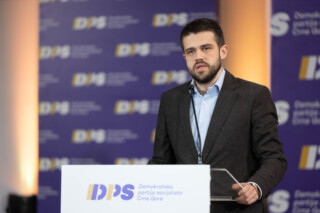The European Union, EU, is not a partner that can back the Montenegrin democratic forces anymore. Only Washington and Joe Biden can do it now, a Croatian historian and professor at the Faculty of Philosophy in Zagreb, Hrvoje Klasić, says in an interview for Pobjeda, a daily. He also points out that no country in Europe has had such government as in Montenegro.
However, he believes that “the civic Montenegro won’t disappear, as Europe wouldn’t want it to happen and Brussels won’t allow it either. I hope there’re enough Montenegrins to preserve Montenegro. However, that’s not diminishing pressures from the outside. I believe that Vučić himself does not aim to abolish Montenegro as a state, but he is certainly pursuing a different approach in which he wants to include it in the concept of the “Serbian world”. He is more interested in spheres of influence than changes in borders, so he’s definitely counting on Republika Srpska and Montenegro as his strongholds in the region.”
“The biggest challenge for Montenegro are those who are ruining it from the inside, as they don’t consider it their country,” according to Mr Klasić.
On the role of the Serbian Orthodox Church in Montenegro, he says: “The SPC is carrying out its policy as those who are in power now allow it. And those are people who declare themselves as Serbs in Montenegro and go to Belgrade when they need an opinion. In addition, when we’re speaking about the SPC, we should be careful, as not all SPC bishops are the same and were not sharing same opinions with the late Amfilohije Radović.”
A war crime without war criminals
“Unfortunately, Vladimir Leposavić is not the only politician who raises questions over the qualification of the Srebrenica genocide. The long list of like-minded people includes officials from all sides, from the Serbian Prime Minister Ana Brnabić and BiH Presidency member Milorad Dodik to Banja Luka Mayor Draško Stanivuković. The most problematic part of this whole story is not really the disagreement over the definition of genocide, as it has always served only as an excuse to avoid facing responsibility for the events of the summer of 1995.”




